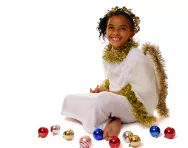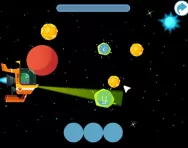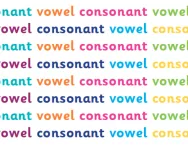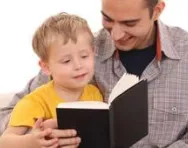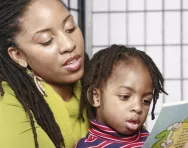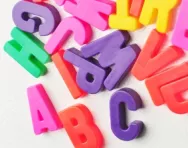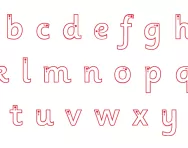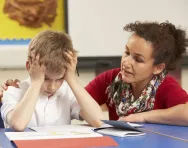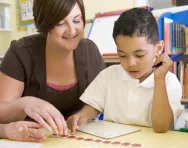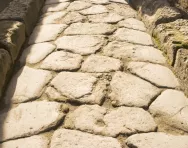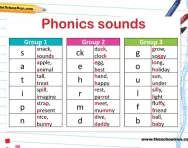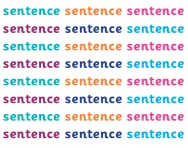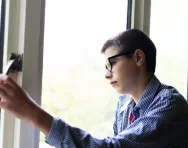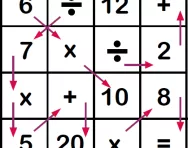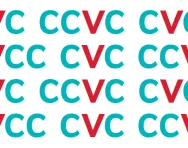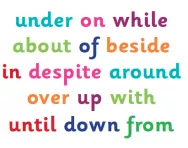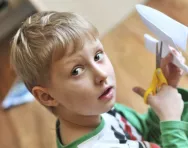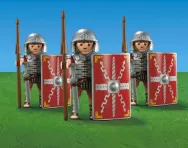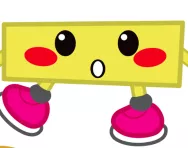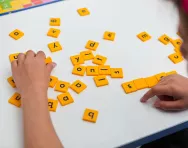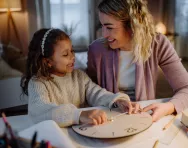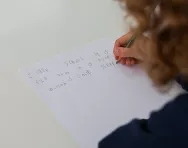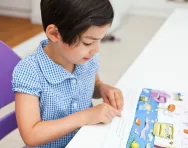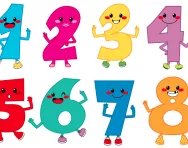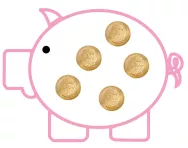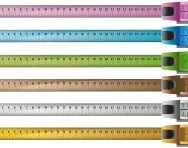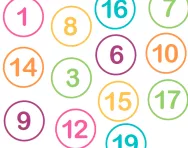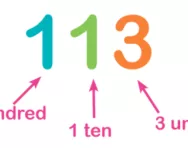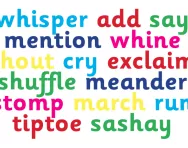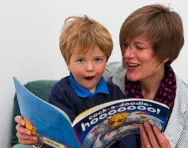Brilliant Nativity costumes to buy
Pressed for time on getting an outfit together for your child’s Nativity play? We’ve found a range of costumes to dress your little Mary, Joseph, star or shepherd in that won’t break the bank!
Best phonics learning tools
Want to practise phonics at home? We’ve picked some of the best games, apps, tools and books to help you reinforce what your child is learning at home – the fun way!
What are vowels and consonants?
We explain what vowels and consonants are and how primary-school children are taught to identify CVC, CCVC and CVCC words, vowel digraphs and consonant digraphs.
What is an explanation text?
An explanation text is a specific type of writing and includes some identifiable features. Find out how your child's teacher will teach explanation texts and what your child needs to include in their own explanation texts.
What is a non-chronological report?
A non-chronological report is a piece of text that isn't written in time order. Find out how your child is taught to read and write non-chronological reports in primary school.
What is brainstorming?
Children learn how to brainstorm in school to generate ideas and solve problems. Find out how teachers encourage children to develop this skill and how it can help improve your child's written work.
What is encoding?
Find out how your child will learn to encode – hear a sound and write it down – and what you can do at home to support learning.
What is decoding?
From the first years of school your child will learn to decode written words and say them aloud. Find out how teachers teach decoding and how you can support learning at home.
What is blending?
As they learn to read, children are taught individual sounds and then how to link them together to form words. By the end of Reception your child will be able to blend sounds together; find out how your child will be taught blending in school and how you can support learning at home.
What is a letter sound?
By the end of EYFS your child should know the sound each letter makes. Find out how your child will be taught letter sounds in school and how you can support learning at home.
What is a grapheme?
Your child will be taught about graphemes as part of their phonics learning journey. We explain what graphemes are and how you can help your child understand the concept at home.
How to work with your child’s SENCO
Having a healthy working relationship with your child’s SENCO can help ensure they get the support they need. Here’s how to ensure you make a good team. By Lucy Dimbylow
How a SENCO could help your child
If your child has a special educational need, the school’s SENCO is likely to play a big part in his day-to-day life and learning. Lucy Dimbylow highlights nine ways in which she can help make your child’s school journey easier.
4 ways to travel back to Roman London
Travel back in time 2,000 years and enter Londinium, a Roman city which stood where the capital does today. Bring the Roman empire to life without leaving the UK (and for free!) with a walk round Roman London, from Londinium's amphitheatre to the remains of the Roman Wall. Francesca Fenn of Step Outside Guides offers a few ideas for a Roman discovery day for KS1 and KS2 children.
What is phonics?
Sort your phonemes from your graphemes, decoding from encoding and digraphs from trigraphs with our parents' guide to phonics teaching. Our step-by-step explanation takes you through the different stages of phonics learning, what your child will be expected to learn and the vocabulary you need to know.
What is sentence level work?
Sentence level work is everything your child will be taught about grammar, text content and punctuation in the primary-school classroom. We offer some examples of activities to help them practise and improve their writing at home.
7 common school life problems solved
Every parent wants their child to be happy at school, but what if there’s a problem? Here’s our step-by-step guide to tackling and resolving some of the common issues that might crop up in primary school.
12 great benefits of maths challenges
Maths activities could give your child’s learning a boost in many ways, and help them engage with numbers (and enjoy it!) from a young age. Lucy Dimbylow offers 12 reasons to give number puzzles a go today.
What are CVC words, CCVC words and CVCC words?
Phonics teaching introduces children to CVC words (consonant vowel consonant), then CCVC words (consonant consonant vowel consonant) and CVCC words (consonant vowel consonant consonant). Understand how teachers will present the different words in the classroom and how to support your child's learning at home in our parents' guide to decoding and blending sounds.
What are prepositions?
Prepositions are some of the most common words in the English language. We explain how your child will learn to use them in primary school and why time connectives are so important in non-fiction writing.
5 at-home design and technology projects for primary children
Design and technology is part of the national curriculum. Teacher and parent Phoebe Doyle offers some practical D&T project ideas and suggestions to help your child get hands-on, boost their confidence and have fun (and make mess!) with materials at home.
5 primary school art projects to try at home
Art is part of the national curriculum and one of the subjects your child will be taught at school. Teacher and parent Phoebe Doyle offers some practical project ideas and suggestions to help expand their knowledge and experience at home.
12 of the best ways to get kids excited about history
We’re surrounded by history and heritage, and these books, games, toys and apps will make it come to life for children (and adults!) of all ages. Cook a Tudor treat, visit a virtual Roman London or read the diary of a war nurse – each activity is packed with information and details that create a real sense of being in the past. Start a life-long love of history and its treasures today!
Teachers' tricks for subtraction
Help your child become subtraction savvy with our teachers' tips on methods, practical resources, vocabulary and more. From subtraction songs and subtraction story problems to column subtraction, Phoebe Doyle offers some practical homework help for 'taking away'.
Encourage a love of drama and the stage
Whether your child is a diva in the making or more inclined to be backstage crew, drama and acting could help develop skills that will offer a boost in many areas of life, says Lucy Dimbylow.
10 ways word puzzles can help your child
Crosswords, word searches and hangman aren’t just handy ways to keep your child quiet for five minutes; they could also boost their learning in some surprising ways. Here’s how…
Best time-teaching products
Great toys, books and resources to help your child learn to tell the time on analogue and digital timepieces, from clock face recognition to estimating time differences on the 24-hour clock.
What is a free school?
How do free schools differ from standard primary schools? How do they operate and what do they teach? If you’re thinking of sending your child to a free school, or just want to know more about them, here’s a brief parents' guide.
Common handwriting problems and solutions
Illegible handwriting? Huge letters? Strange pencil grip? Struggles with left-handed writing? If your child is finding handwriting hard, perhaps it’s one of these four issues. Find out more about how to tackle these common problems with advice from the National Handwriting Association's Angela Webb.
Starting school: keeping up the momentum in Reception year
So they’ve flown the nest... well, until the school run that is! Primary-school teacher (and parent of a Reception child) Phoebe Doyle offers some advice on keeping motivation maxed and avoiding tears during this most crucial of school years.
Holidays in term time: the parents’ guide
Once your child is at full-time school, cheap term-time holidays become a thing of the past. But who sets school term dates, and is taking your child out of school for a family break really a big no-no? TheSchoolRun explains.
5 number and counting skills primary-school children need
Numbers are all around us, almost from birth! Teacher Phoebe Doyle looks at counting, a fundamental aspect of mathematical understanding, to help your child grab the basics (without confusion!) from day one.
Teachers' tricks for shape, space and geometry
Throughout primary school children learn about the properties of the shapes in the world around them (primary geometry, in other words). Phoebe Doyle offers some insiders’ tips on helping them master shape and space maths targets.
Teachers' tricks for money maths
Money is the ultimate ‘real-life’ maths resource. Here's how to make the most of this tool to improve your child's maths learning at home.
Teachers' tricks for weights and measures
Weights and measures can be a really fun area of maths to teach in school – but one that can leave parents unsure of how to help at home. Teacher Phoebe Doyle has some hints and suggestions.
What are number bonds?
If your child is in Key Stage 1, chances are they'll have told you they're learning 'number bonds'... but what are they? Teacher Alice Hart explains why children are taught these number pairs, and how you can help your child practise them at home.
What is place value?
A good understanding of place value (the value of each digit in a number) is vital in primary-school maths. Our parents' guide explains how your child will be taught about ones, tens, hundreds and thousands with number lines, arrow cards and more, as well as outlining how place value is used to help children visualise calculations.
What are powerful verbs?
Using powerful, descriptive verbs can make a big difference to your child's writing. We explain what parents need to know about powerful verbs (and ordinary verbs!) when helping with primary-school homework.
Teachers' tricks for addition
Help your child with their addition work, from the basics in Reception to calculations in KS1 and KS2, with some teachers' tricks to help the learning stick.
Foundation stage assessment levels explained
Struggling to make sense of your Nursery or Reception child’s school report? We explain how to decode those baffling assessment levels.
